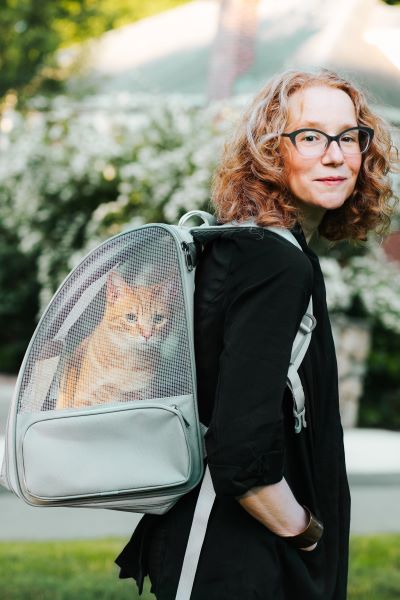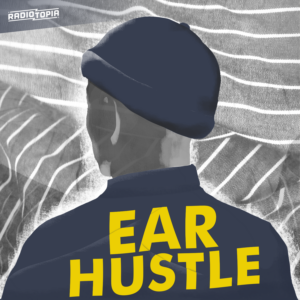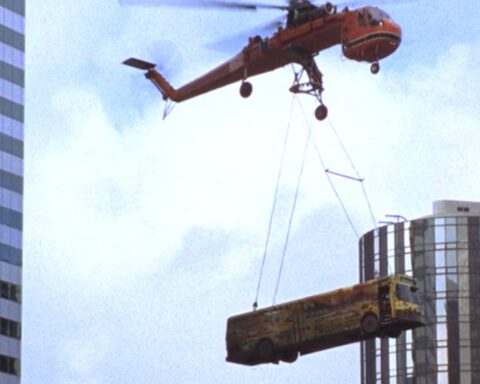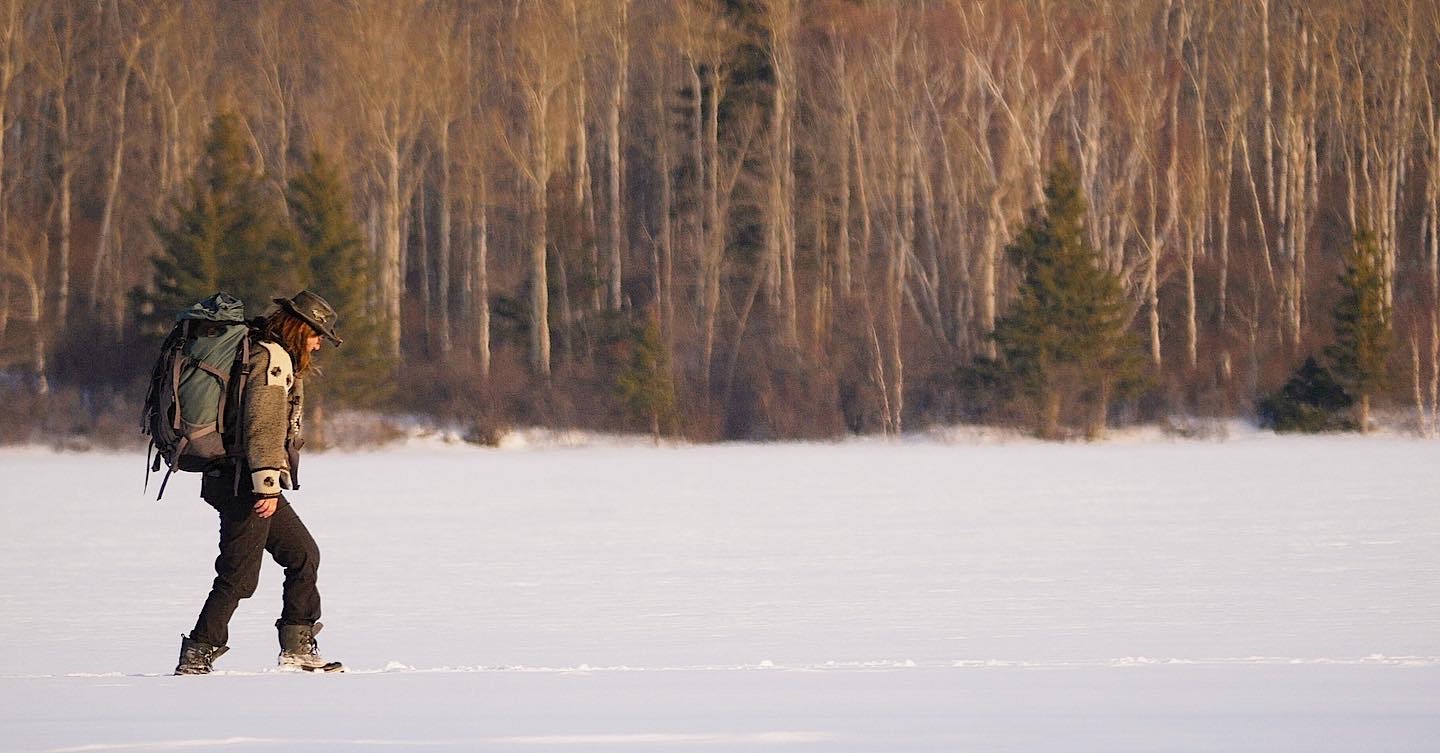This past spring, Julie Shapiro, a legend in the podcast industry and co-founder of the prestigious Chicago-based Third Coast International Audio Festival, announced her departure from a brief stay at the UK outfit Novel and was openly “looking for something big, bold and soundful… let’s talk.”
Alan Black, then newly minted chief operating officer at Canadaland, read her tweet and acted on it. Canadaland is an independent podcasting network that acts somewhat like a traditional publishing business, but is funded by listener subscriptions via Patreon. It offers a broad spectrum of non-fiction shows including edgy journalism, news, talk shows, and hard-hitting true crime. Founded by ex-CBC employee Jesse Brown, it’s been around since the early days of the podcast industry.
Recently, they forged a multi-year first-look deal with the giant Entertainment One. They sent out a call for show pitches this June, stating that they will “prioritize pitches that have strong adaptation potential.”
It was then that Canadaland approached Shapiro about coming on board with them to help manage and choose from the wide range of proposals put forward by the producing community to Canadaland.
Shapiro has a good eye and one hell of a reputation in the world of audio storytelling. Time will tell if her talent for discovering the next great podcast sensation extends to the Canadian industry. It’s certainly an intriguing prospect.

To understand the importance of Julie Shapiro for the podcasting industry, one has to draw a careful line through her career. She’s not the host of a wildly popular series. She’s not a founder of a company that was acquired for x million dollars. She’s not the giant media personality that some of her fellow podcast pioneers have become. But she has been at the centre of many significant moments of the industry. One can easily argue that she’s played a major role in how this nascent cultural form has shaped itself, in terms of spirit and intent, over the last 25 or so years.
If we were to make an analogy to the music industry, her importance to the many podcasters whose careers she’s nurtured over the years is like that of Quincy Jones to the careers of Michael Jackson, Dinah Washington, and Lesley Gore. To make the same analogy to the documentary film world, she’s perhaps what Jeffrey Skoll of Participant Media is to filmmakers like Laura Poitras (Citizenfour, 2014) and Davis Guggenheim (An Inconvenient Truth, 2006).
What Shapiro really has is a knack for being in the right place at the right time, doing the right things, being curious about the best new ideas, and then being daring enough to take a leap of faith and start something new.
After graduating with a sociology degree from University of Colorado at Boulder, Shapiro spent time in the ’90s as a record store clerk and dove into the world of experimental music. She became involved when the combination of indie/experimental music and zines was just about the defining creative spirit of the moment.
Shapiro called her zine Anodyne. It always featured contributions from readers, in a participatory format. Her zine tested different concepts, changed formats and had a loose publishing schedule. “It’s very relevant to the work I’m doing now,” Shapiro reflects.
In 1998, when she realized that it was time to consider a serious career, she applied to do an internship at WUNC, the NPR affiliate in Chapel Hill, North Carolina and, on a whim, included her zine with the application. During the interview, John Stempin, then interim news director, took out her zine, put it on the desk, and asked: “How do we turn this into radio?”
This question would be a harbinger of things to come for Shapiro. How do you adapt a creative project for a new format that doesn’t exist yet? This idea would become the DNA of the Third Coast audio storytelling festival that she would later co-found with Johanna Zorn in 2000.
The idea was still tucked deep and dormant when she took a job in the late ’90s at the Duke University Center for Documentary Studies. This experience opened her mind to the power of documentary as an audio storytelling format.
It was the mix of those things—music, radio, zines, journalism, and documentary— plus a twist of fate, that would all add up something new: “I happened to move to Chicago at the right time in 2000, met Johanna, and we started the festival. [Which] then turned into the next 15 years of our lives,” recounts Shapiro.
Zorn wanted to make “the Sundance of audio.” This was another way of saying that she wanted to create a space that would help audio storytelling turn into something worth listening to and celebrating. Third Coast became the first major event in North America to recognize audio storytelling as a new cultural format. “I don’t know if [Zorn had] ever had been [to Sundance], but I think that was a way to explain what we’re doing. Everyone knows what Sundance is: It’s highly prestigious, [and] we wanted to really be taken seriously. You have literary festivals; you have film festivals; why doesn’t radio have its own space for a celebration?” remembers Shapiro.
Even if public radio, the only viable distribution mechanism for audio storytelling at the time, was willing to air a show about sexuality that included swearing and didn’t always follow proper journalistic practices, there was still the limitation that there are only 24 hours in each day, many of which are relegated to repeat programming or re-broadcasting of European news formats.
But all of that was about to change. The arrival of a new technology, the RSS (Real Simple Syndication) feed, still the basis for the distribution of podcasts, effectively created an infinite radio dial for podcast distribution.
“I remember the first person who mentioned a podcast to me…I was at a PRPD [Public Radio Program Director’s] Conference in Cleveland, in 2004, and there was a guy called Tony Kahn [an award-winning public-radio journalist] who was talking about this new technology. He was really on fire about it. I quickly came to get that this was going to change the way we do everything, from listening to making. Everyone was kind of pinning their hopes on this being a new way of not having to follow rules and clocks and structures. And so it was a big deal.”
Fast forward to 2011. The piece to take the Documentary Gold Award at Third Coast was called The Wisdom of Jay Thunderbolt, a self-styled “hybrid of interview and song,” published by the legendary Love + Radio podcast. The previous decade’s winners were great but old-fashioned: one-off radio-style shows from around the world.
“It was a piece like nothing we’d ever heard before. You wouldn’t get it onto the radio [at the time], because it was pretty provocative and challenging,” Shapiro remembers.
During the first year of the festival in 2001, Shapiro was invited to attend the inaugural International Features Conference, now a longstanding festival put on by the European Broadcasting Union. It brings together “features” makers in documentary, drama, and entertainment, mostly from public radio, for an event that involves in-depth listening and critiques in a big room full of people. Much like the documentary community, Europe has its own radio culture and economy, which has deep public-radio sentiments.
Over the first formative decade of building out Third Coast, Shapiro travelled the world attending other festivals, where she met creators and makers, participated in deep group-listening environments, and took notes about how to build an event that celebrates the art and craft of audio storytelling—documentary and drama—that would appeal to both the industry and the public. The influence of the European public broadcasting tradition would help to shape and mold Third Coast into what it became.
In the next chapter of her audio career, Julie took all of this collective spirit, the rule-breaking and genre-busting ethos of Third Coast, to Australia, where she helped to build the country’s audio storytelling industry. Then, in 2015, she returned to the US to become the executive producer at Radiotopia, a podcast network founded in 2014 by Roman Mars of 99% Invisible podcast and Public Radio Exchange (PRX) with one of the most successful Kickstarter campaigns in history and a grant from the Knight Foundation.
Radiotopia was built on the slightly audacious principle that independent audio storytellers needed two things: a distribution network (which PRX provided) and a collective spirit. Strength in numbers was needed—a high tide raises all boats. Open to fresh ideas, Radiotopia brought a slew of memorable and long-running shows mixing personal stories and journalism with music into existence, including The Kitchen Sisters Present, Criminal, Song Exploder, Radio Diaries, The Heart, and many others.
About a year after Shapiro’s arrival, Radiotopia decided to take some leftover grant money and pour it into a call for pitches. The appeal, an open call-out for “story-driven podcast ideas” resulted in an astounding 1,537 pitches.

From that giant pile, only one winner was chosen: Ear Hustle, an innovative documentary podcast about prison life, co-produced by a volunteer visiting artist and two inmates at San Quentin State Prison. Shapiro would act as its executive producer until 2022. This show went on to amass more than 70 million downloads, win a Pulitzer Prize and be nominated for a Peabody Award, and contribute to the release of two of its incarcerated producers, who continue to podcast as free men. It was a show that created a defining social and cultural moment.
Shapiro was at Radiotopia/PRX from 2015 until 2022, which meant that she witnessed the big bang of podcasting. From her front-row seat, Shapiro saw it all: She knows all the players; she watched the audience grow and then explode; she saw several production companies begin as start-ups and then be sold for millions of dollars.
Did Shapiro see something different in the Canadian industry from what she saw on her “Commonwealth Tour” of podcast jobs in Australia and the UK? “Not really” is her response. “It’s just happening at a different scale here.”
Reflecting on the proposals sent to Canadaland, she says decisively, “The pitches that jump off the page are the ones that make me sit up and go: ‘Wait, what?’ The formalities of structure and form and duplication are less interesting to me.”
Over the last two decades, Shapiro has shaped and nurtured a slate of shows that have taken hold of the public imagination, grown the language of narrative podcasts, and helped to create a home for innovative talent.
Does the call for pitches from Canadaland, which coincides with its 10th anniversary year, signal that this legacy production house and the producing community around it are ready to step up and take a greater role in our culture and industry? Let’s hope so. Because the talent, the appetite, and the ears are here for it.














